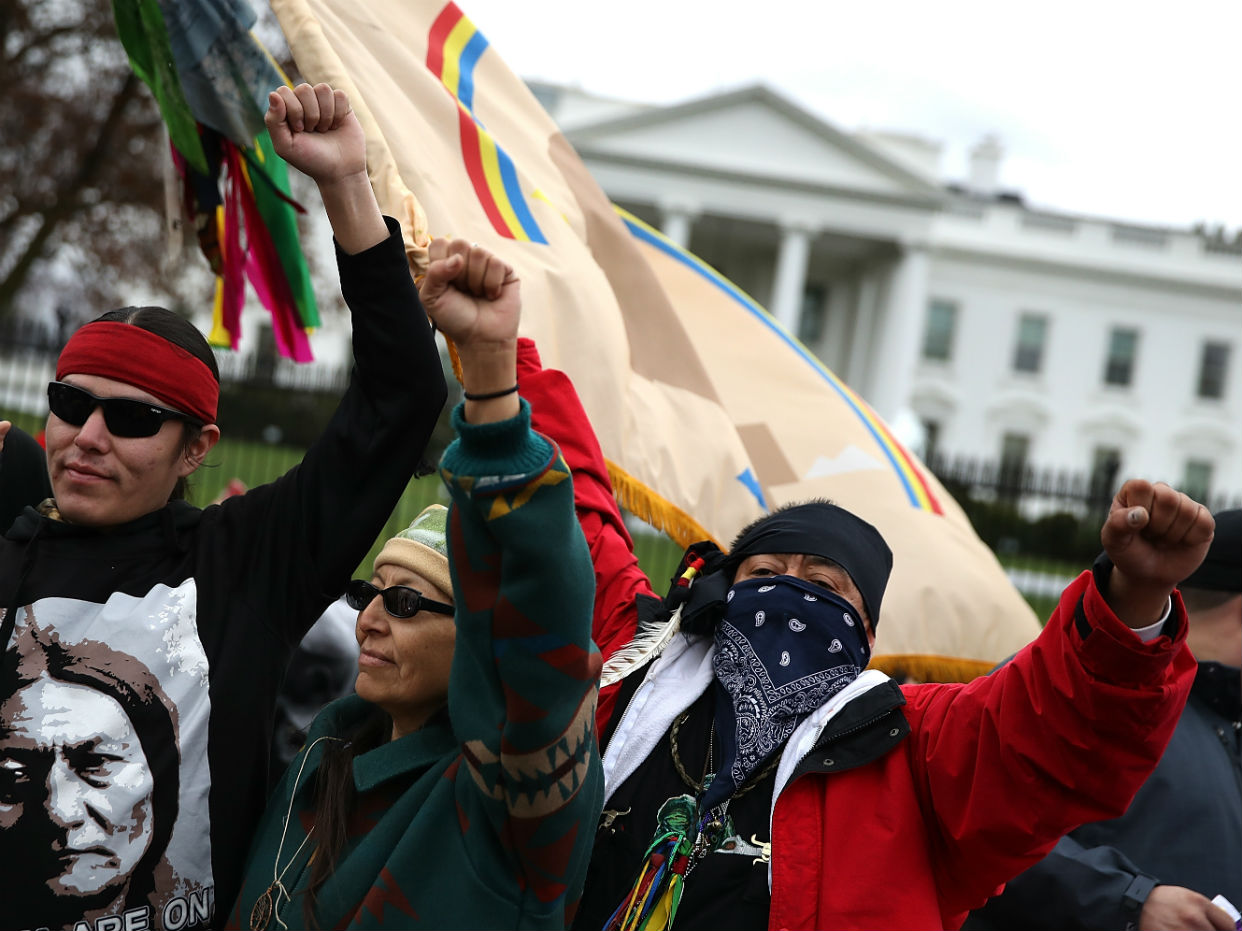New US laws attack right to protest
New legislation - including protecting drivers who run over demonstrators - 'at odds with human rights', says UN

A free daily email with the biggest news stories of the day – and the best features from TheWeek.com
You are now subscribed
Your newsletter sign-up was successful
More than 20 US states have proposed bills making protests and demonstrations more difficult in the months since President Donald Trump was elected.
Proposals include increased penalties for protesting in large groups, banning demonstrators from wearing masks and, in some states, protecting drivers who run over protesters.
The American Civil Liberties Union (ACLU) described the legislation as "an unprecedented level of hostility towards protesters in the 21st century."
The Week
Escape your echo chamber. Get the facts behind the news, plus analysis from multiple perspectives.

Sign up for The Week's Free Newsletters
From our morning news briefing to a weekly Good News Newsletter, get the best of The Week delivered directly to your inbox.
From our morning news briefing to a weekly Good News Newsletter, get the best of The Week delivered directly to your inbox.
More than 30 such bills have been introduced "amid a huge increase in activism and engagement, much of it inspired by Trump's election to the presidency", says The Guardian.
The UN has now decided to intervene in response to claims from the ACLU and the National Lawyers Guild that some of the legislation is unconstitutional. It says the wave of bills are "incompatible with US obligations under international human rights law".
In a letter to the US State Department, David Kaye and Maina Kiai, from the UN's Office of the High Commissioner for Human Rights, listed specific pieces of legislation they said were "criminalising peaceful protests".
The bills represented "a worrying trend that could result in a detrimental impact on the rights to freedom of peaceful assembly and freedom of expression in the country", they said.
A free daily email with the biggest news stories of the day – and the best features from TheWeek.com
Many of the new laws were introduced in preparations for the building of the North Dakota Access oil pipeline, which was given the green light by Trump, provoking a wave of demonstrations.
-
 Tourangelle-style pork with prunes recipe
Tourangelle-style pork with prunes recipeThe Week Recommends This traditional, rustic dish is a French classic
-
 The Epstein files: glimpses of a deeply disturbing world
The Epstein files: glimpses of a deeply disturbing worldIn the Spotlight Trove of released documents paint a picture of depravity and privilege in which men hold the cards, and women are powerless or peripheral
-
 Jeff Bezos: cutting the legs off The Washington Post
Jeff Bezos: cutting the legs off The Washington PostIn the Spotlight A stalwart of American journalism is a shadow of itself after swingeing cuts by its billionaire owner
-
 Greenland’s capital becomes ground zero for the country’s diplomatic straits
Greenland’s capital becomes ground zero for the country’s diplomatic straitsIN THE SPOTLIGHT A flurry of new consular activity in Nuuk shows how important Greenland has become to Europeans’ anxiety about American imperialism
-
 Epstein files topple law CEO, roil UK government
Epstein files topple law CEO, roil UK governmentSpeed Read Peter Mandelson, Britain’s former ambassador to the US, is caught up in the scandal
-
 Iran and US prepare to meet after skirmishes
Iran and US prepare to meet after skirmishesSpeed Read The incident comes amid heightened tensions in the Middle East
-
 Which way will Trump go on Iran?
Which way will Trump go on Iran?Today’s Big Question Diplomatic talks set to be held in Turkey on Friday, but failure to reach an agreement could have ‘terrible’ global ramifications
-
 Israel retrieves final hostage’s body from Gaza
Israel retrieves final hostage’s body from GazaSpeed Read The 24-year-old police officer was killed during the initial Hamas attack
-
 China’s Xi targets top general in growing purge
China’s Xi targets top general in growing purgeSpeed Read Zhang Youxia is being investigated over ‘grave violations’ of the law
-
 Ukraine, US and Russia: do rare trilateral talks mean peace is possible?
Ukraine, US and Russia: do rare trilateral talks mean peace is possible?Rush to meet signals potential agreement but scepticism of Russian motives remain
-
 Panama and Canada are negotiating over a crucial copper mine
Panama and Canada are negotiating over a crucial copper mineIn the Spotlight Panama is set to make a final decision on the mine this summer